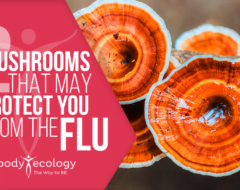Conquer Candidiasis: Understanding the Silent Epidemic
Candidiasis, also known as candida, yeast, or fungal infection, is a prevalent yet often misunderstood health issue affecting many individuals today. This silent epidemic can manifest in various forms, leading to a range of symptoms and health complications. In this article, we will delve into the complexities of candidiasis, its impact on the body, and effective strategies for overcoming this condition.
Watch these 3-part video talking about Candidiasis:
Part 1
Part 2
Part 3
The Root Cause of Candidiasis
Candidiasis often stems from factors such as prolonged use of antibiotics, a diet high in sugar and refined carbohydrates, and a weakened immune system. These factors create an environment conducive to the overgrowth of Candida albicans, the fungus responsible for candidiasis. When Candida overgrows, it can lead to a systemic infection, affecting multiple organs and systems in the body.

Recognizing the Symptoms
Symptoms of candidiasis can vary widely, making it challenging to diagnose. Common symptoms include chronic fatigue, digestive issues, brain fog, mood swings, and skin conditions such as eczema and psoriasis. Women may experience recurrent vaginal yeast infections, while men may notice symptoms such as joint pain and urinary tract infections. Understanding these symptoms is crucial for early detection and treatment.
The Role of Diet in Candidiasis
One of the key components of managing candidiasis is adopting an antifungal diet. This diet focuses on eliminating foods that promote Candida overgrowth, such as sugar, refined carbohydrates, and alcohol, while emphasizing whole, nutrient-dense foods. By depriving Candida of its primary fuel sources, the antifungal diet helps restore balance in the body and reduce inflammation.
Natural Approaches to Treatment
While conventional medicine often prescribes antifungal medications such as nystatin, natural approaches can also be effective in combating candidiasis. Probiotics, for example, help restore the balance of good bacteria in the gut, which is essential for keeping Candida in check. Other natural remedies, such as garlic, oregano oil, and caprylic acid, have antifungal properties that can help eliminate Candida overgrowth.
Lifestyle Changes for Long-Term Relief
In addition to dietary changes and natural remedies, certain lifestyle modifications can help prevent recurrent candidiasis. Stress management techniques, regular exercise, and adequate sleep are crucial for supporting a healthy immune system and reducing inflammation. Avoiding unnecessary antibiotic use and maintaining good hygiene practices also play a role in preventing candidiasis.
Candidiasis is a complex health issue that requires a comprehensive approach to treatment. By understanding the root causes, recognizing the symptoms, and implementing dietary and lifestyle changes, individuals can effectively manage and overcome candidiasis. It is essential to work closely with healthcare professionals to develop a personalized treatment plan that addresses the underlying causes of candidiasis and promotes long-term health and wellness.

Reference
Meyer, H., Goettlicher, S., & Mendling, W. (2006). Stress as a cause of chronic recurrent vulvovaginal candidosis and the effectiveness of the conventional antimycotic therapy. Mycoses, 49(3), 202-209. https://pubmed.ncbi.nlm.nih.gov/16681811/
Garone, S. (2023, April 13). Can stress cause a yeast infection? Healthline. https://www.healthline.com/health/can-stress-cause-yeast-infection
Iyer, K. R., Robbins, N., & Cowen, L. E. (2022). The role of Candida albicans stress response pathways in antifungal tolerance and resistance. iScience, 25(3), 103953. https://www.ncbi.nlm.nih.gov/pmc/articles/PMC8905312/











